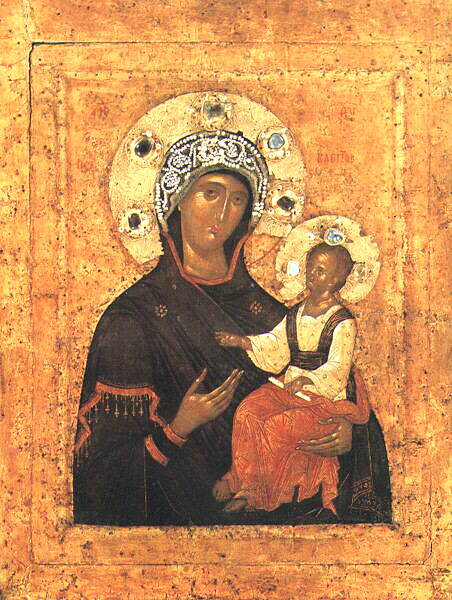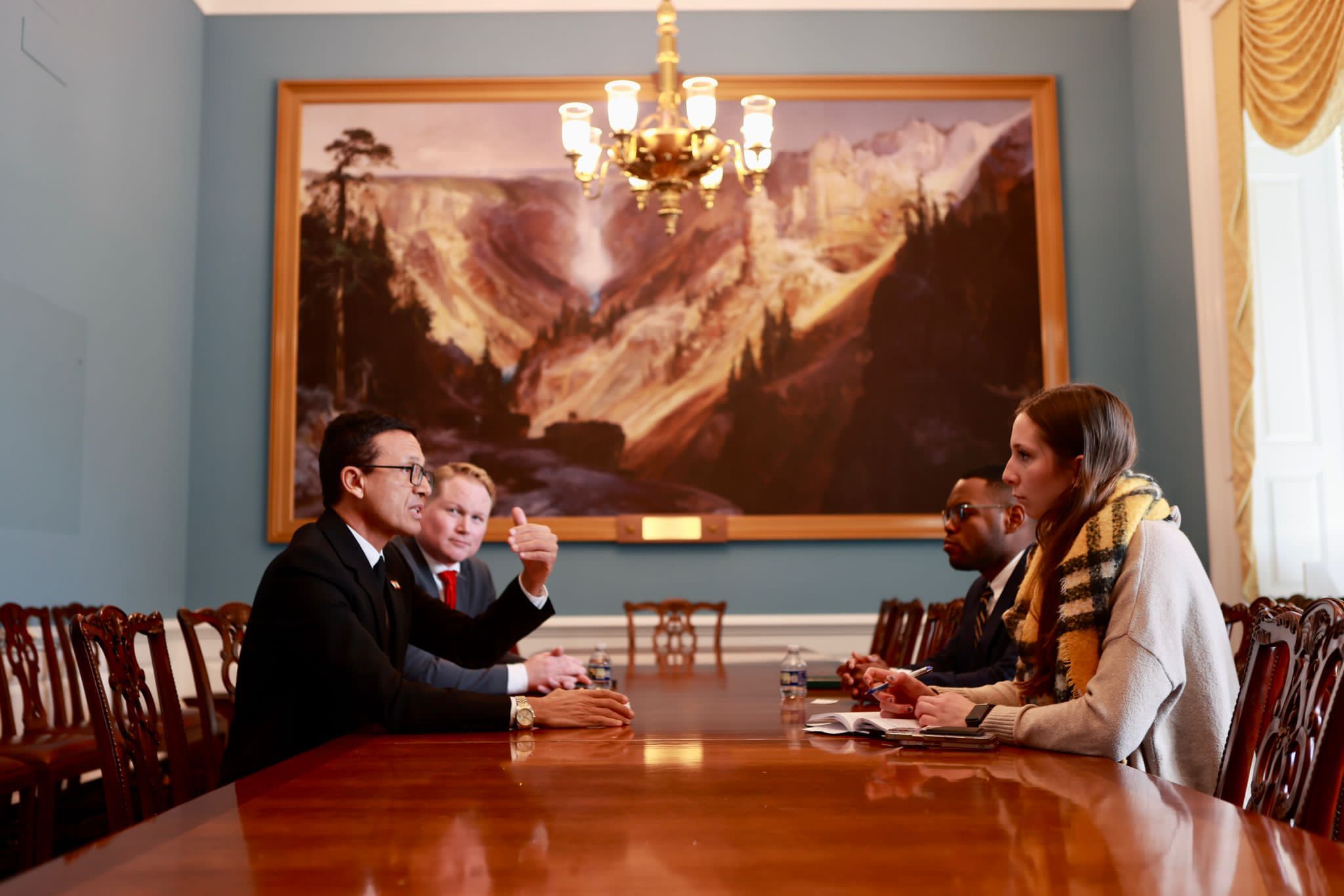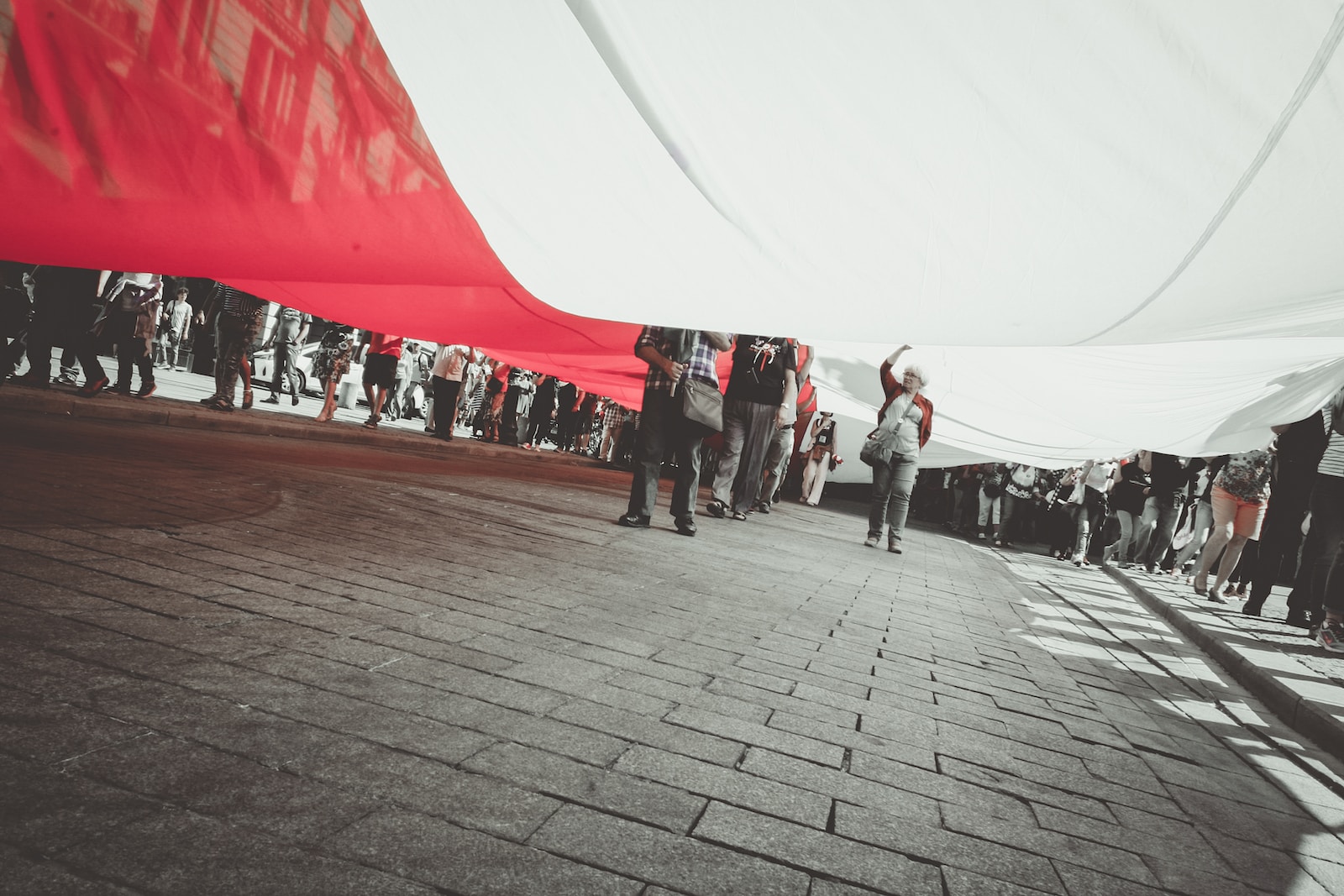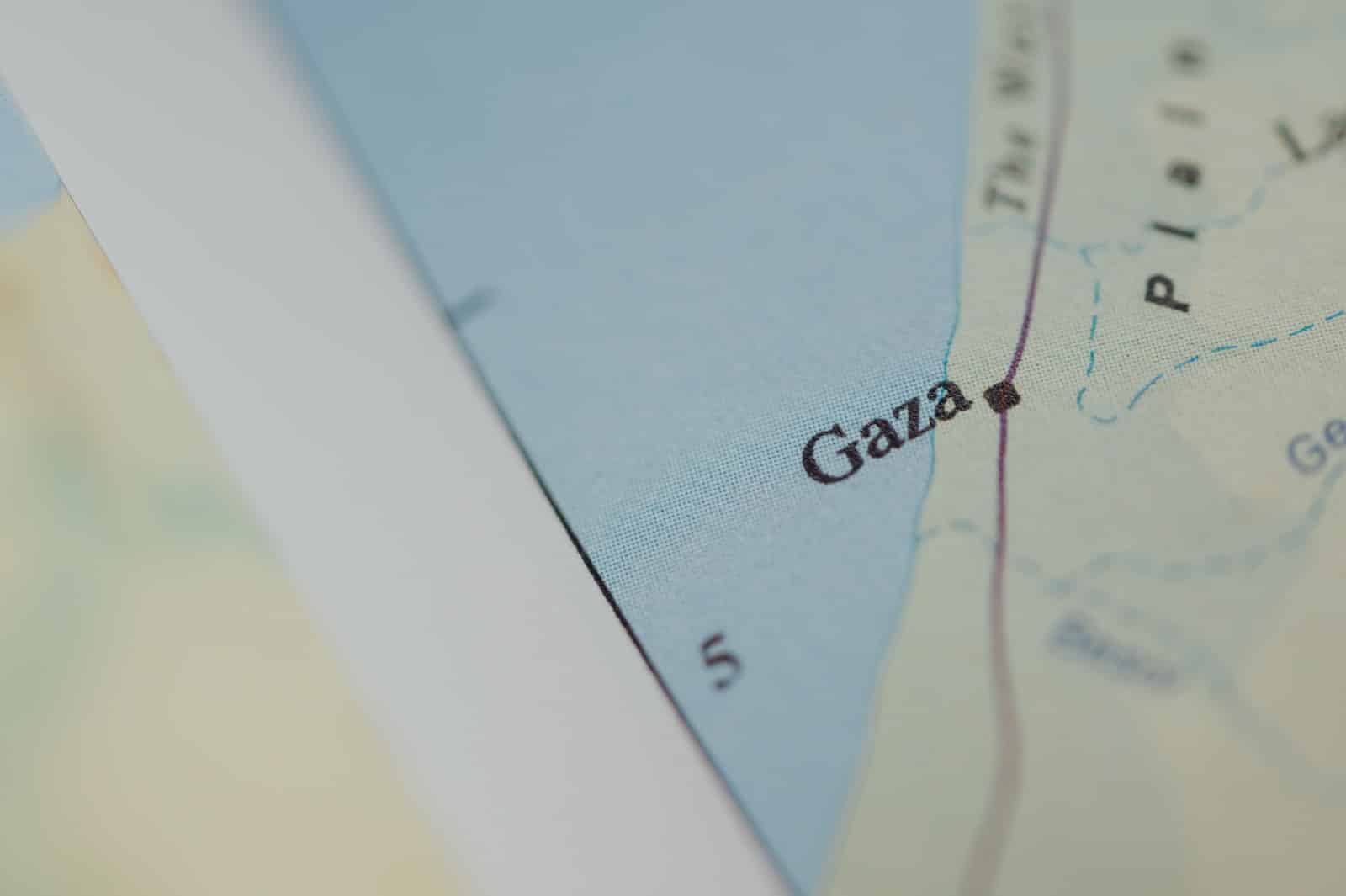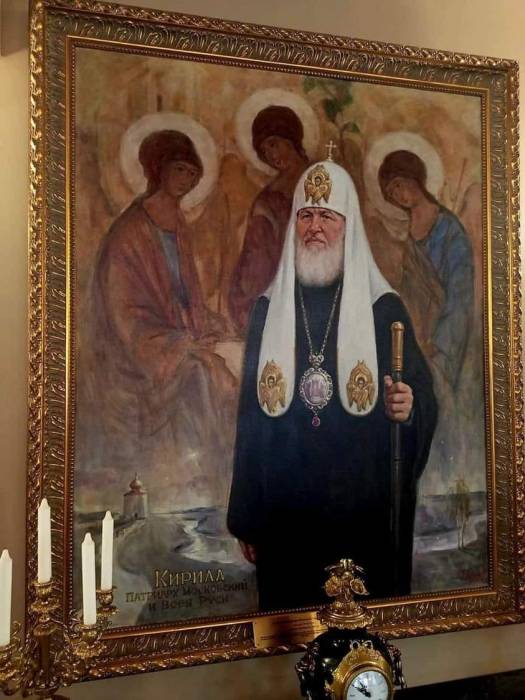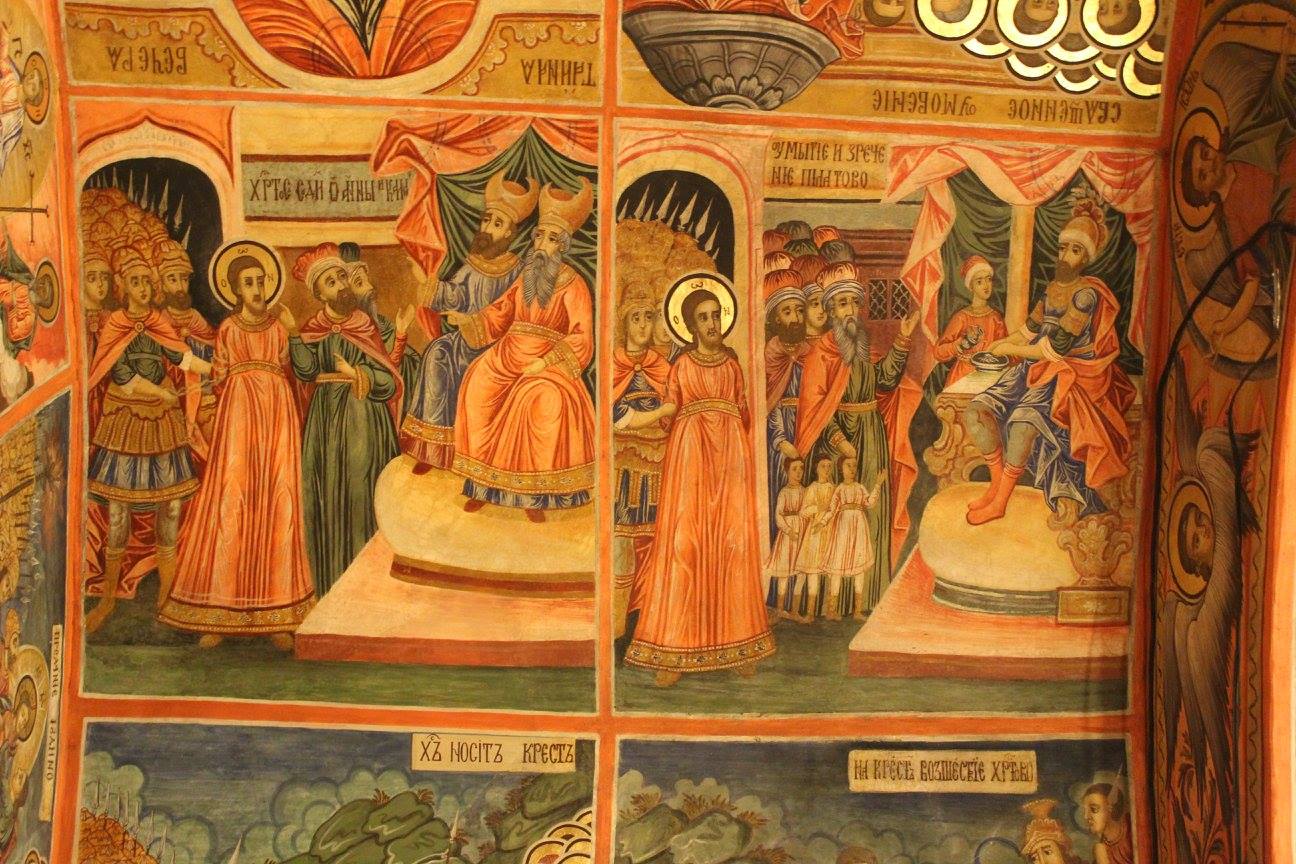Interview of Archbishop George of Cyprus (elected on December 24, 2022 and enthroned on January 8, 2023) for “Phileleuteros”, in which he talks about the problems of the Church of Cyprus, the role and responsibility of the Church in society and towards the new generation. He explains what made St. Synod to take a positive decision on the sex education of children at school, criticizes the modern Cypriot processions of relics and holy slippers in churches and answers the teachers of Religion for the cancellation of the non-school day, which in Cyprus was given to students on the name day of the superior of the Church of Cyprus. He also commented on the morning prayer in schools and the problems facing the teaching of Religion.
– How is the new life in the archdiocese going, Your Beatitude?
– The work in the archdiocese is much more than in my former metropolis in Paphos. I encountered problems varying in quantity and quality. With God’s help, everything is overcome. I am aware that the responsibilities are many for the whole Church of Cyprus. I try to be an archbishop whose doors are open to the faithful who want to greet him, ask for a blessing or seek help, to be an archbishop who does not say “no” to those who seek him.
– The positive decision of St. A synod on the sex education of children at school was a pleasant surprise for society. What is it due to?
– I was an educator and a school teacher, I follow the development of society and I know that today, through technology and other means, children are exposed to all this at a very early age. If we don’t say something, it doesn’t mean they don’t know it. They know it, and probably in the wrong way. A responsible leadership will help them stay away from the deviations we don’t want. We have set some conditions – for example, that this training be adapted to the age and receptivity of the children. To be taught by specialists who have certain training and to consider the content of the material with us, but also with the parents.
– Should bishops who do not have children and live celibate have such extreme views on the issue of sexuality and homosexuality?
– It doesn’t matter, there are many unmarried and childless people in society and they have their own opinion on these issues, just like us. We do not live outside society. The fact that the Church requires some people to be celibate in order to hold certain positions (ie the episcopate) does not mean that they are asocial and ignorant of society’s problems. And we have responsibility and knowledge, and we can take positions on these issues.
– The teachers do not agree with the cancellation of the non-school day, which was the archbishop’s name day. What would you tell them?
– Learning time is valuable for all children, not just adults. Having worked in schools, my position is that the archbishop’s name day should not be a non-school day. I would be happy if this day is used for studying. Let the schools not be closed. If the teachers want to go to church in the first period, they can do so, as well as take time in class that day to discuss the role of the Church in the development of our people.
– Religious education and morning prayer in schools in the age of multiculturalism and mixed schools is a divisive issue. What is your position?
– Religion class is not a strict catechism. Depending on the age receptivity of the children, knowledge about other religions is also taught. In the upper grades, children are introduced to the ethical dilemmas that confront them because of technology, science, and bioethical issues. For example, the dilemma: whether they can become organ donors, whether they can trust the in vitro fertilization technology.
Regarding prayer: every living being depends on something that is beyond this world. Even atheists believe in their atheism. That people turn to God and ask for His help is not something that belittles them. And a disciple, when he prays, can receive strength. The problem is created by some who believe that the schools are educating children who are not Orthodox Christians. Let them stand there and pray to their God.
– Holy slippers and holy heads often come to our temples. Doesn’t this go beyond symbolism and the Orthodox religion?
– I’m not in favor of periodically disposing of the relics. I haven’t done it in Paphos either, except twice. Archbishop Macarius only once brought the head of St. Apostle Andrew. However, he never once allowed holy relics to be distributed for commercial purposes for the benefit of the people. I’m against that. When they say that it is the slipper of some saint, and some already speak of it derisively, that is not correct, not least because it is not a shoe that the saint wore. They take a new shoe and place it on the relic to light it. I don’t think this is right and I won’t encourage it. Our faith is spiritual, it should not be subject to abuse.
– What is your attitude towards modern technologies?
– Since I have an education in the field of natural sciences, I try to follow and use technology as much as possible, but I also have an opinion on these issues that pose a danger to people. With so much technology, our judgment and free will are dulled. We follow instructions all the time, and if we hit a dead end, we seek out the expert. This is a result of the excessive information available to us. I support technology, but I am also critical of it. Otherwise, the archdiocese is being modernized digitally. Some European projects are also underway.
– Your Grace, as you said, critical thinking is lost. What is the Church doing to get closer to young people and at the same time protect them from addictions, bad habits and criminal behavior?
– We are in constant contact with parents, teachers and young people. We also have catechism Sunday schools, which are not popular today, they were just an option in the past. There is no free time today. We have church camps where kids detox from their daily habits. We organize meetings on various occasions with the youth, we do not fail to be close to the young generation and convey the messages of Christ.
– The Church in Cyprus and entrepreneurship? Are investments made and how is church property used?
– I found a ready-made project, but it is not a business, but a way to generate income for the social, religious and national activity of the church. To pay the priests, the church has to pay a sum of 4.5 million euros per year. Also there are benefits for needy children, sending patients for treatment abroad, we bear electricity, water and other expenses of poor people. For all these activities we need income which cannot come if we do not use the church property.
– Is today the time of magnificent temples and displays of wealth by the church?
– It is not and never has been, of course. When Judas saw a woman who washed Christ’s feet with precious ointment, and told the Master that it could be sold so that the funds would go to the poor, the Lord rejected the offer. This means that what we do for Christ is not a waste. The fact that we are building bigger temples today is because we have the technology to serve more people. We need temples because it meets the needs of an area. New temples are built where there is a need. This is not money lost. “We must not be the last generation of Greeks in this place.”
– What is your hobby?
– It was always the reading. When I had chemistry exams, my hobby was reading about religion to distract myself, and when I had theology exams, I read chemistry to escape the hustle and bustle of exams. And now I like to read books in the field of chemistry. For example, environmental chemistry.
– Who is your role model in life?
– I lived in a priestly family and I was definitely influenced by my father. Every day we were in the temple morning and evening, we lived according to a religious model and under the shadow of an archbishop. Macarius, who had a strong influence on us. In the national struggles we wanted to follow him, we were fascinated by EOKA (an organization founded by Col. K. Grivas for the accession of Cyprus to Greece, note ed.), we had our heroes, we lived in a real environment at all, not a virtual one like today.
– Has the Church of Cyprus ever been close to schism?
– We have never reached a schism, because our church has the means to prevent one. Let us mention as an example the position of the three metropolitans towards the archbishop Macarius. Then a great council was convened, which solved the problem. And now, if there are different voices and different positions, something better can come out of it. Ultimately, decisions are made either by majority or unanimity. If we come to a major crisis, there is a way to find solutions.
– Has it ever happened that people came to you and told you: take measures for this hierarch, he is doing so-and-so or deviates on some important topic?
– Yes, I meet people personally, I treat their opinion with attention. This is something I do often. I receive alerts and read the newspapers. People are the best criterion. They should send a message to their bishop that they do not accept certain things and demand that they change.
Photo: Orthodox icon “Mother of God (Perivlepta)”



